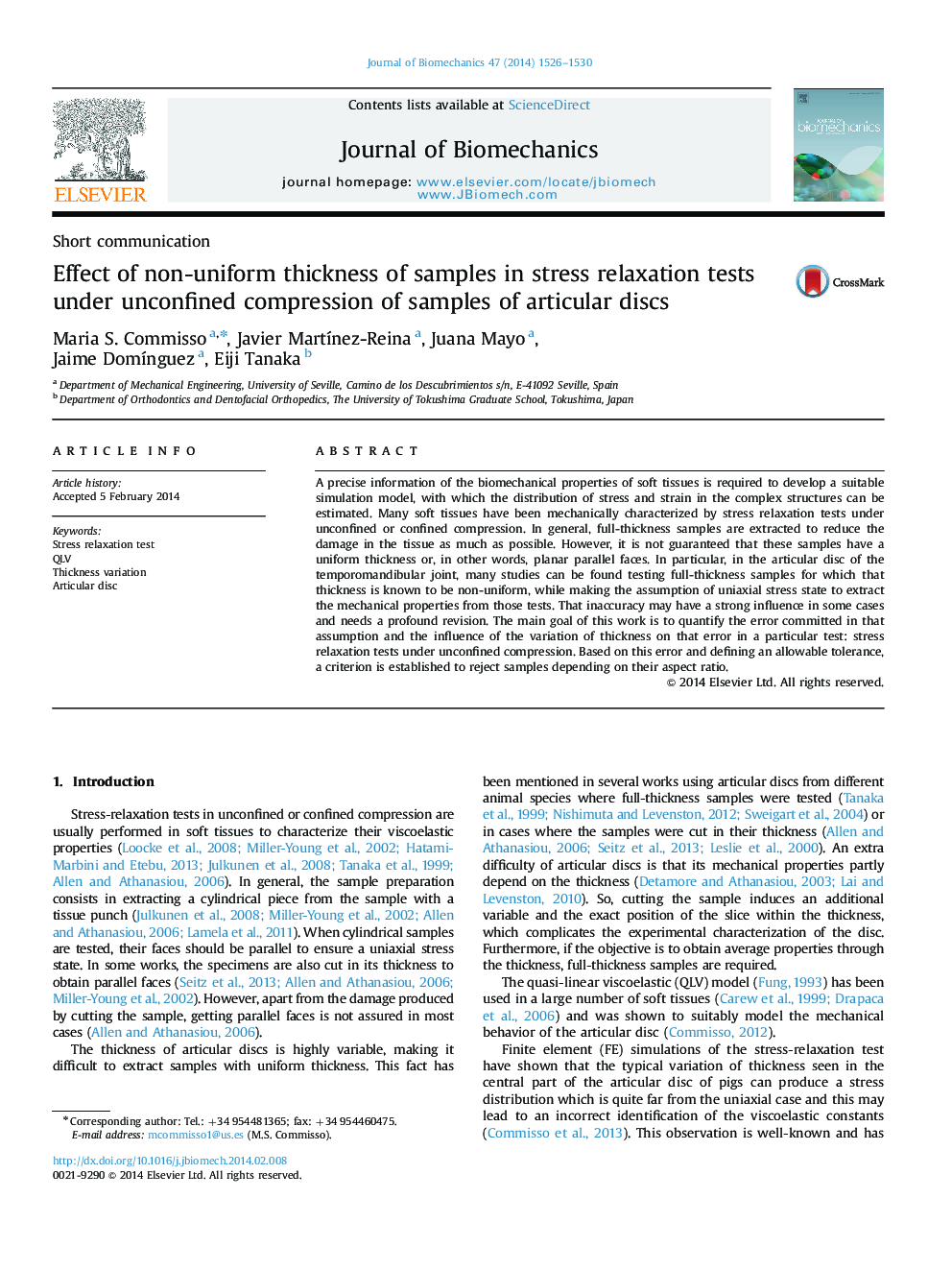| Article ID | Journal | Published Year | Pages | File Type |
|---|---|---|---|---|
| 10432041 | Journal of Biomechanics | 2014 | 5 Pages |
Abstract
A precise information of the biomechanical properties of soft tissues is required to develop a suitable simulation model, with which the distribution of stress and strain in the complex structures can be estimated. Many soft tissues have been mechanically characterized by stress relaxation tests under unconfined or confined compression. In general, full-thickness samples are extracted to reduce the damage in the tissue as much as possible. However, it is not guaranteed that these samples have a uniform thickness or, in other words, planar parallel faces. In particular, in the articular disc of the temporomandibular joint, many studies can be found testing full-thickness samples for which that thickness is known to be non-uniform, while making the assumption of uniaxial stress state to extract the mechanical properties from those tests. That inaccuracy may have a strong influence in some cases and needs a profound revision. The main goal of this work is to quantify the error committed in that assumption and the influence of the variation of thickness on that error in a particular test: stress relaxation tests under unconfined compression. Based on this error and defining an allowable tolerance, a criterion is established to reject samples depending on their aspect ratio.
Related Topics
Physical Sciences and Engineering
Engineering
Biomedical Engineering
Authors
Maria S. Commisso, Javier MartÃnez-Reina, Juana Mayo, Jaime DomÃnguez, Eiji Tanaka,
